Huaqing Lake is a historic site located in the Shaanxi province of China. Used as an imperial palace during the Tang Dynasty, Huaqing Lake is now a popular destination for tourists. The lake is famous for its natural beauty and historical significance. Additionally, the hot springs in the lake are an ideal place for visitors to relax. Huaqing Lake is also a part of China's historical and cultural heritage. The views of the lake offer visitors a fascinating beauty to admire. Huaqing Lake is one of China's most beautiful natural tourist destinations and provides visitors with an unforgettable experience.
Huaqing Lake: Historical and Natural Beauties of China
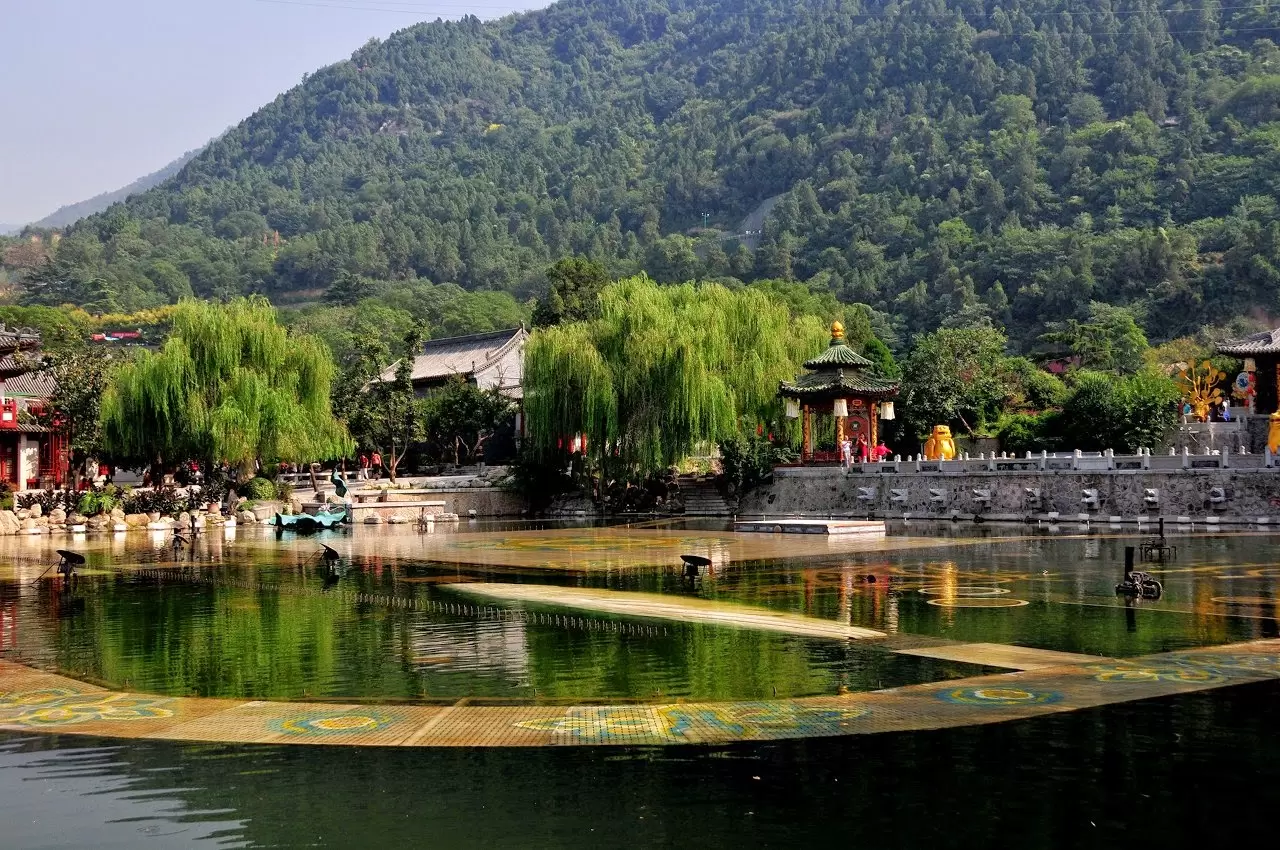
Huaqing Lake, located among the historical and natural beauties of China, is one of the country's most important tourist destinations. The lake is located in China's Shaanxi province and has been considered an important place since the Tang Dynasty.
Huaqing Lake has an important place in Chinese history. The imperial palace was built here during the Tang Dynasty. In addition, one of China's famous poems, "Huaqing Palace Song," was written at this lake. The lake has also played an important role in China's modern history. In 1936, China's nationalist leader Chiang Kai-shek held a meeting here to resist the Japanese occupation.
Huaqing Lake is also famous for its natural beauty. The lake is located at the foot of the Qinling Mountains and the surrounding landscapes are quite impressive. The lake's waters are fed by thermal springs and the hot springs are used to improve the health and well-being of visitors.
Huaqing Lake offers many activities for visitors. You can walk around the lake, relax in the thermal baths, or watch performances of Chinese culture. You can also visit the historical structures around the lake.
In conclusion, Huaqing Lake has an important place among China's historical and natural beauties. In addition to its important place in Chinese history, the lake also impresses visitors with its natural beauty. Huaqing Lake is a must-see place for anyone who wants to explore China's rich culture and natural beauty.
Huaqing Lake: A Place Full of Legends and Historical Memories
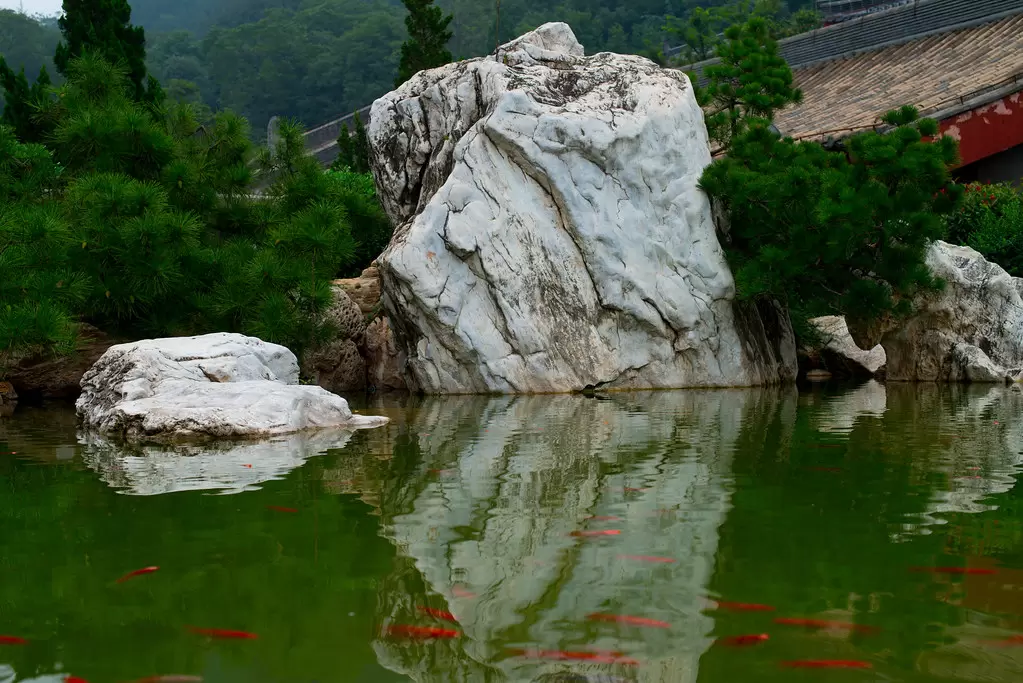
Huaqing Lake is a historical site in China's Shaanxi province, filled with legends. Used as an imperial palace during the Tang Dynasty (618-907), Huaqing Lake has also hosted many important events.
The most famous legend of Huaqing Lake is the story of Emperor Xuanzong and his lover Yang Guifei during the Tang Dynasty. Yang Guifei was a famous beauty and one of the emperor's favorite concubines. However, Yang Guifei's family and relatives believed that the emperor's love for her was harming the country and decided to kill her. The emperor was deeply saddened by Yang Guifei's death and fled to Huaqing Lake to try to forget his pain.
Huaqing Lake has also hosted many important events in Chinese history. For example, in 1936, China's nationalist leader Chiang Kai-shek held a meeting at Huaqing Lake to fight against Japanese occupation. This meeting is considered an important turning point in China's nationalist movement.
Today, Huaqing Lake is a popular tourist destination with many historical buildings and gardens around the lake. These include palace ruins, hot springs, and gardens from the Tang Dynasty. Additionally, many cultural events are held at Huaqing Lake every year.
Huaqing Lake has made an important contribution to China's rich history and culture. This historical site filled with legends offers visitors many interesting stories about China's past.
Huaqing Lake: Fascinating Views Offered by Nature
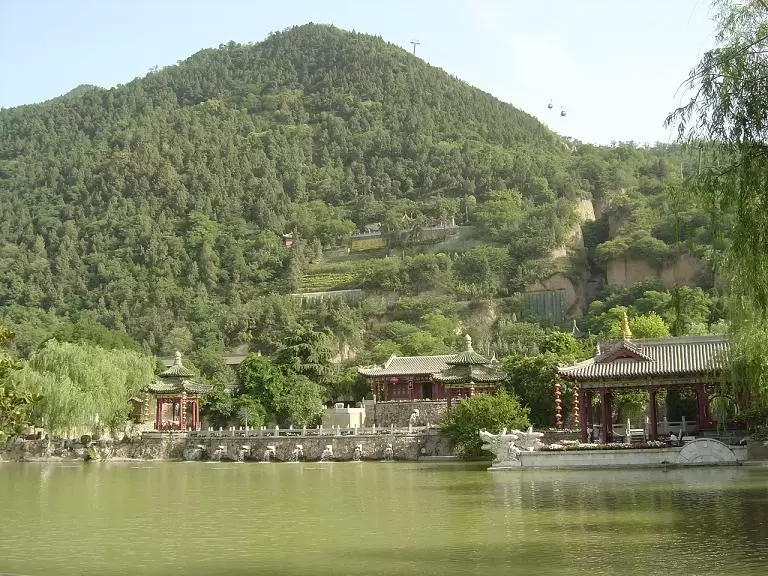
Huaqing Lake, located in the Shaanxi province of China, is famous for its enchanting natural scenery. The lake, which has witnessed many important events throughout history, is also one of China's most important tourist destinations.
During the Tang Dynasty, Huaqing Lake was used as an imperial palace. The love story of Emperor Xuanzong and his lover Yang Guifei also took place at this lake. The lake also has an important place in modern Chinese history. In 1936, a meeting was held between China's nationalist leader Chiang Kai-shek and the Japanese Imperial Army.
Huaqing Lake also stands out with its natural beauty. The lake is surrounded by mountains and covered with forests that contain every shade of green. The water of the lake is crystal clear and the stones at the bottom of the lake can be seen clearly. Walking around the lake is a great opportunity to explore the beauty of nature.
Huaqing Lake is also famous for its thermal springs. The thermal pools around the lake are an ideal place for visitors to relax and relieve stress. The temperature of the thermal pools is around 43 degrees Celsius and contains minerals that are beneficial to skin health.
Huaqing Lake is one of the rare places that combines China's historical and natural beauty. Visitors come here to explore the historical and natural beauty of the lake. Huaqing Lake is one of the must-see tourist destinations in China.
Huaqing Lake: Among China's Mysterious and Romantic Places
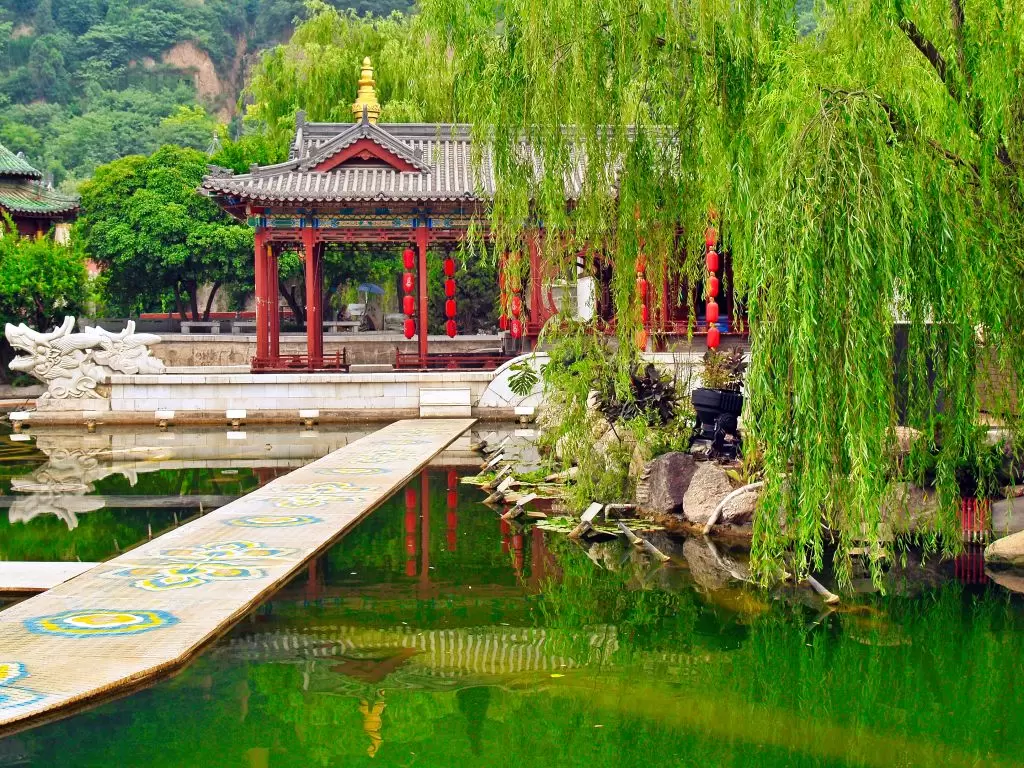
Huaqing Lake is one of the most mysterious and romantic places in China. This place is located in the Shaanxi province of China and hosts a palace complex dating back to the Tang Dynasty. Huaqing Lake has an important place in Chinese history and has been the subject of many legends.
During the Tang Dynasty, Huaqing Lake was used as the summer palace of emperors. The palace complex was used for more than 700 years and witnessed many important events. The palace complex was bombed by the Japanese in 1936 and suffered great damage. However, it was later restored and opened to tourists.
Huaqing Lake has an important place in Chinese history. The palace complex was used as the summer palace of emperors during the Tang Dynasty. Additionally, it was bombed by the Japanese in 1936 and suffered great damage. However, it was later restored and opened to tourists.
Huaqing Lake is one of the most romantic places in China. The lake is a place where many couples prefer to spend a romantic holiday with its natural beauty and historical significance. Additionally, traditional Chinese tea ceremonies held at the lake are quite popular.
Huaqing Lake is among China's mysterious and romantic places. The palace complex dates back to the Tang Dynasty and has an important place in Chinese history. Additionally, the lake is a place where many couples prefer to spend a romantic holiday with its natural beauty and historical significance. Huaqing Lake is one of China's most important tourist destinations and is visited by thousands of tourists every year.
Huaqing Lake: A Region That Draws Attention with Its Historical and Cultural Values
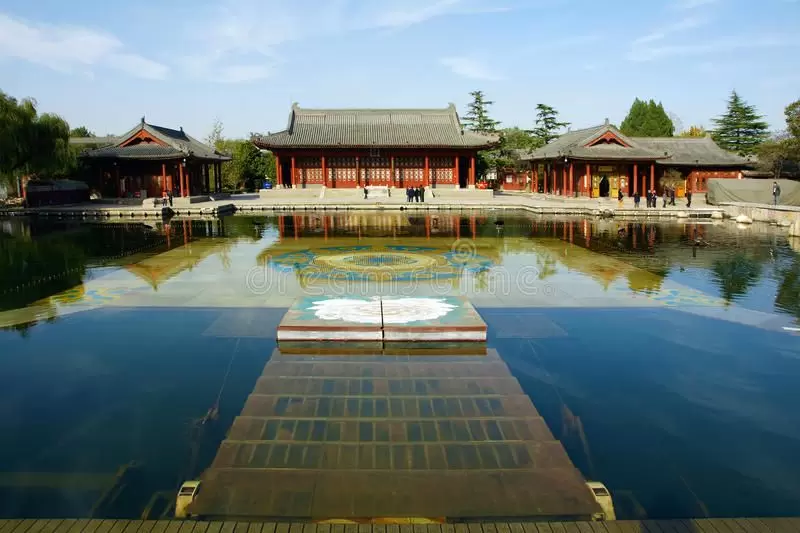
Huaqing Lake is a region located in China's Shaanxi province, known for its historical and cultural significance. Used as an imperial palace during the Tang Dynasty, Huaqing Lake has become a popular tourist destination today.
Huaqing Lake is famous for its natural beauty and historical structures. The Huaqing Palace located in the region was used as an imperial palace during the Tang Dynasty. The pools, gardens, and buildings within the palace attract visitors. Additionally, the natural beauty of Huaqing Lake is quite impressive. The mountains, forests, and lake in the region provide visitors with a natural atmosphere.
Huaqing Lake also reflects China's historical and cultural heritage. The Tang Dynasty was an important period in Chinese history, and Huaqing Lake is a significant symbol of this period. The structures and artifacts in the region reflect the architectural and artistic style of the Tang Dynasty. Additionally, Huaqing Lake is an example of efforts to preserve China's cultural heritage. Restoration work in the region is an important step in preserving China's historical and cultural heritage.
Huaqing Lake is an important destination for tourists. The historical and cultural structures, natural beauty, and China's historical and cultural heritage attract visitors. Additionally, restoration work in the region is an important step in preserving China's historical and cultural heritage. Huaqing Lake is an ideal travel destination for tourists interested in exploring China's rich historical and cultural heritage.

Comments